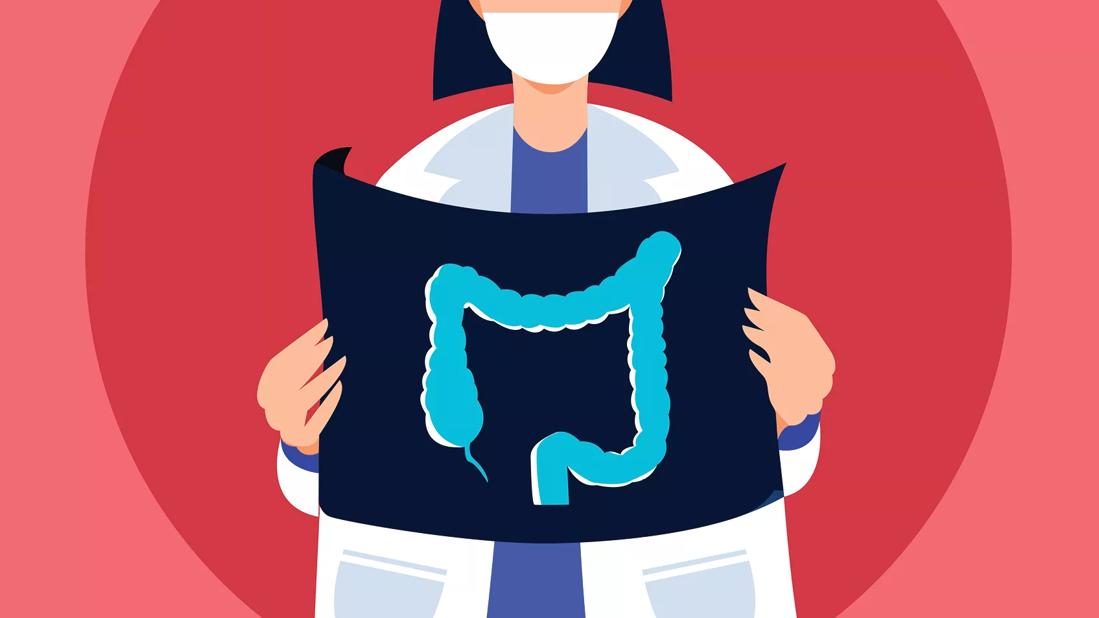Improved prep taste, timing make for a better experience

Image content: This image is available to view online.
View image online (https://assets.clevelandclinic.org/transform/3a049753-870a-43ff-849d-4681b2267113/Colonoscopy-1274729377-770x533-1_jpg)
An illustration of a doctor holding an image of a colon
When your doctor says it’s time to schedule a colonoscopy, do you start thinking up excuses to put it off? You may worry about unpleasantness and inconvenience as you prepare for the exam. But you should know that the prep process is much easier these days.
Advertisement
Cleveland Clinic is a non-profit academic medical center. Advertising on our site helps support our mission. We do not endorse non-Cleveland Clinic products or services. Policy
Yes, one of the keys to a successful colonoscopy is getting your colon as clean as possible, which includes your diet days before the exam and the laxative “clean-out” beforehand. But improvements — in the amount of liquid you drink and the timing — make the whole process easier to swallow.
Here gastroenterologist Carol Burke, MD, explains what you need to know.
Most patients who develop colon cancer have no obvious risk factors. “If you have a colon, you are at risk for colon cancer. Colon cancer arises from colon polyps. If colon polyps are removed, colon cancer is decreased. Even if colon cancer is present, when detectable in early stages, it is curable. That’s why colonoscopies are vital for your health,” Dr. Burke says.
The American Cancer Society estimates that about 53,000 people will die from colorectal cancer in 2021. Colorectal cancer is one of the leading causes of cancer-related deaths in U.S. for men and women.
The good news? The death rate continues to drop, thanks to early screenings and better treatment. The key is to have regular exams beginning at age 45, or earlier if you have risk factors.
Excellent quality of colon cleansing (the needed dietary changes and using the bowel preparation laxative) helps your doctor spot signs of trouble.
Advertisement
Drinking a laxative prep to cleanse your bowel isn’t everyone’s favorite thing to do. But it’s a key part of your colonoscopy. “If the colon lining is not clear of solid and liquid, then bowel residue can cover polyps — which are a precursor for cancer — and can be missed,” Dr. Burke says.
Good preps make the exam more effective and efficient. If your prep is poor, the doctor may need to repeat your exam — and you’ll need to repeat the prep.
You’ll start preparing for your colonoscopy a couple of days before you drink the bowel-cleansing agent.
In a recent study, she and other researchers compared the split-dose prep to other conventional single dose, night-before bowel-cleansing methods. They found that a split-dose bowel preparation decreased the intensity and duration of bowel movements, caused less patient inconvenience and improved bowel preparation.
Dr. Burke says liquid bowel-cleansing agents have become more palatable in recent years. Several better-tasting and lower-volume solutions are now being used. Along with the half-gallon and split-dose approaches, this improves your colonoscopy experience.
“The old gallon or 4 liters of laxative solution has stiff competition these days with 3-liter, 2-liter and 10-ounce alternatives,” she says. “Of course, the lower-volume preps require additional clear liquids for action. Some of my patients have actually said the newest low-volume preps taste great, or that they love them.”
Talk to your primary care doctor about when to start having regular colonoscopies. Your age, race and family history will affect the timing.
Quality matters when it comes to choosing your endoscopist. “It’s best to have your doctor refer you to an endoscopist, who has special training, meets national quality colonoscopy benchmarks and is highly experienced in colonoscopy,” says Dr. Burke.
Advertisement
When you’re not sure of a healthcare provider’s credentials, ask about their complication rate, completion rate and adenoma (polyp) detection rate before having a colonoscopy, she says. The American Society of Gastrointestinal Endoscopy offers a list of questions that you can ask.
Advertisement

Sign up for our Health Essentials emails for expert guidance on nutrition, fitness, sleep, skin care and more.
Learn more about our editorial process.
Advertisement
They might not be fun, but colonoscopies are low-risk, high-reward procedures
A steady increase in cases in those younger than 50 started decades ago
Know your risks for this highly preventable disease
Regular screenings starting at age 45 help lower your risk
Chronic inflammation from flare-ups can damage the lining of your intestinal wall, making your colon more vulnerable to cancer
Colonoscopies and sigmoidoscopies are types of endoscopies, procedures that look at the health of your large intestine
At-home screening options can be good detection tools, but a colonoscopy remains the gold standard
Get lots of fiber, cut back on red meat and limit your alcohol intake
Type 2 diabetes isn’t inevitable with these dietary changes
Applying a hot or cold compress can help with pain
Pump up your iron intake with foods like tuna, tofu and turkey